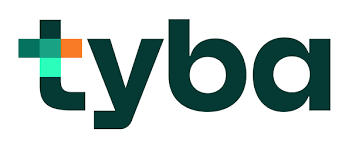At Timbi, we recently interviewed Lina Kuratomi who serves as Quality Assurance (QA) Engineer in tyba, an automated investment and wealth management platform serving consumers within the Colombian market. Lina has more than 8 years of experience in the information technology sector and has worked for various leading companies within different industry sectors.
¿Could you give us a brief summary of your professional career?
I started my career as a QA Engineer in 2012 at a Colombian software house. There, I joined a very complicated project that made me question if being a QA was my true calling in this industry. So I decided to adventure myself into development territory, where I realized I missed being a QA. Since then, I have remained a QA applying what I learned as a developer to test automation, something I have always tried to integrate into the projects where I’ve had the opportunity to participate.
Why tyba? How do you end up in tyba?
tyba was born out of an idea to give regular people the opportunity to invest, people normally left out by the traditional financial institutions because their investments are considered “too little”. I find this proposal appealing and interesting because it allows people limited by the conventional system to reach new saving and investment opportunities. I ended up in tyba partly because of Timbi and partly because of a few friends who had already joined the project before me.
What does a QA Engineer do? Tell us a little bit about your role as QA.
A QA Engineer aims to build a bridge between the business and the more technical part of the development. These are two realms that usually do not speak the same language and whose priorities tend to be constantly in conflict. Therefore, the QA is there to help the technical part meet the business needs, without business forgetting that their prosperity depends on the successful technical implementation of their ideas.
How did you transition into the FinTech sector?
It was a lucky accident because although I had previously toyed with the idea of transitioning, those ideas never materialized.
"tyba was born out of an idea to give regular people the opportunity to invest, people normally left out by the traditional financial institutions because their investments are considered too little."

What do you think of the FinTech ecosystem in Colombia?
I believe that it offers interesting growth possibilities, not only for investors of all kinds but also for us Colombians as consumers of final products. I think that as a society we still have a large sector that is attached to cash and very afraid of technology, either because they lack knowledge about it or due to the risks they tend to associate with it. But I have also noticed that the financial sector, in general, is starting to make an effort to change this.
What has been your worst headache at tyba? Why? What did you do to fix it?
My worst headache in tyba so far has been the misconception some of the leaders had that test automation works in any given way. This is one of the most frequent mistakes I’ve seen in many projects because in the long run it brings costly reprocessing that may have not been evident from the start. This was not an individual headache but one shared by the entire QA team in tyba, so we decided to solve it together by joining forces and carrying out the message to our leaders in the most concrete and effective way possible in order to convince them to adjust the strategy to one which the team felt would accomplish better results in the long term. This solution is still an ongoing project, but it is always rewarding to recognize that teamwork pays off.
What do you think of the role of women within the STEM sector?
I believe we still have a lot of work to do in this regard. On a very personal basis, I find the way various institutions have approached this issue very curious. Many initiatives provide all kinds of incentives to students in their final high school years for them to choose STEM careers when at that time students have already developed a whole set of skills and preferences. In other words, a student in her last year of high school already knows if she likes math or not, and this will probably not change with incentives. I think the problem with the low proportion of women choosing active careers in STEM comes from social constructions and preconceptions that affect us all from early childhood: who are given toys that demonstrate uniform linear motion, that favor logical-mathematical thinking or concepts of spatial distribution? I believe that as a society we have already begun to evolve from these preconceptions and that in the following generations we will begin to reap the fruits of this work. Meanwhile, I think that leaders within the sector are setting an example of inclusion, not only due to the milestones they have achieved, but because they tend to be more aware of their biases and try harder to choose the best candidate for a position regardless of the shape that candidate has.
How has been your experience working remotely during this quarantine? (Taking into account that now the entire team is working under this modality).
It has been challenging in unexpected ways. The work at tyba had allowed us to have a distributed team, since the beginning we had “tybers” already in various parts of the country. However, we suddenly suffered an epidemic of unnecessary meetings that had to be quelled with a series of recommendations and guidelines to help calm the panic some people felt about not having face-to-face interactions. Fortunately, I think we have passed the test since it was already enough for everyone to deal with the confinement and other problems associated with it.
